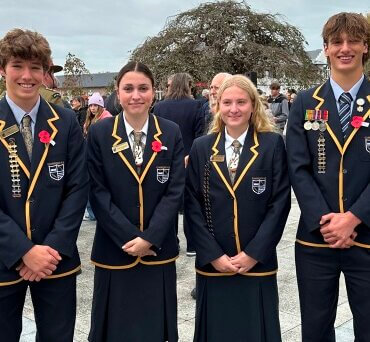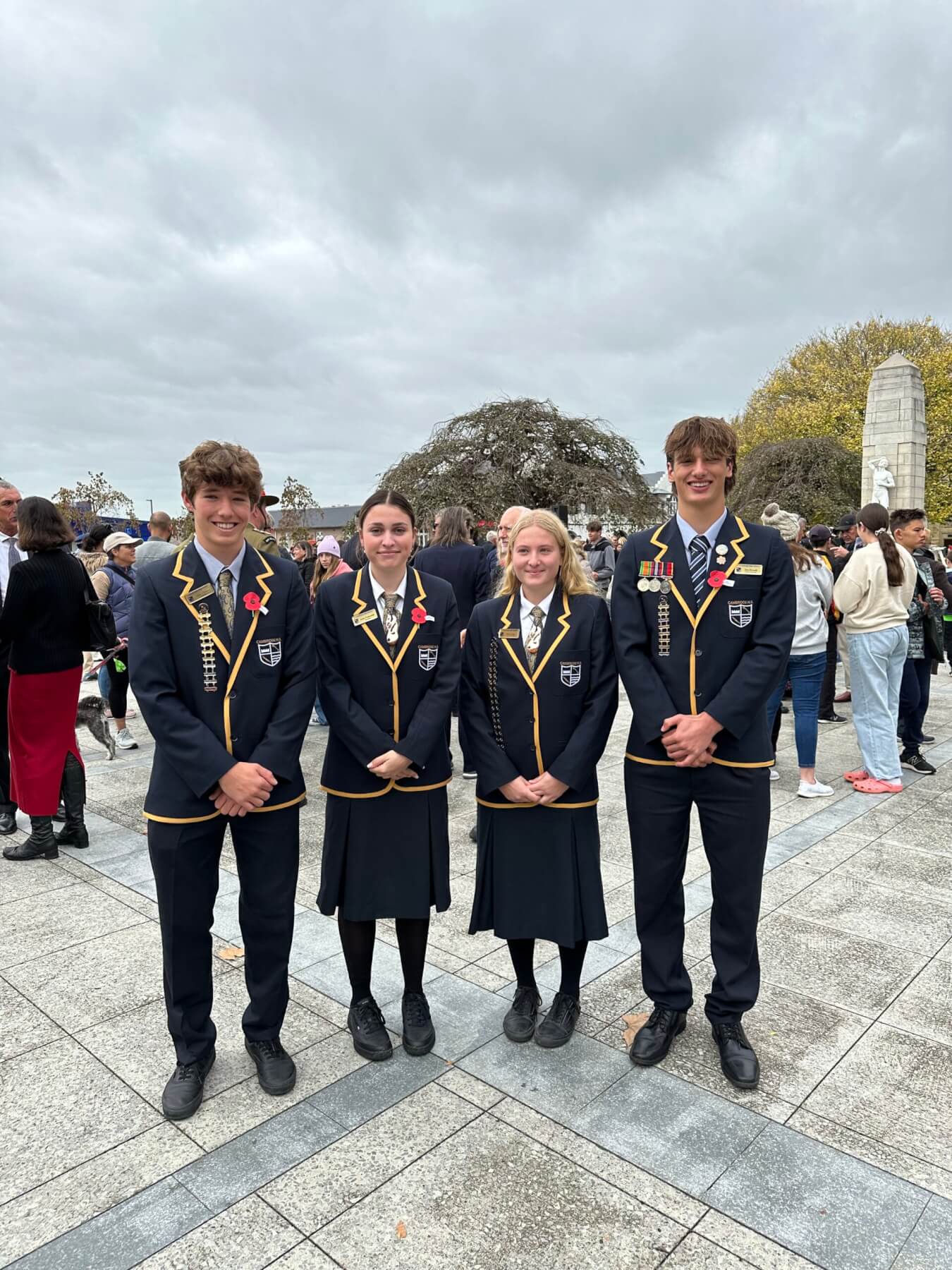
What drove students at Cambridge High and Te Awamutu College to demand action from education minister Jan Tinetti and secretary of education Iona Holsted? Steph Bell-Jenkins finds out.
Cambridge High School’s head girl Bella Peacocke is stressed about how teacher strikes will impact on her chances of getting a university scholarship.
“With our strike days we’ve missed a lot of our classes… which means that if we could have maybe got excellence before, we probably won’t – we’ll get achieved or merits – because we haven’t had the support that we need,” she said.
The year 13 student, who would like to go into business or communications, says she will have missed nine school days by the end of this term.
“I’ve had some teachers in classes saying how we’re going to have to drop some of our internals because we just don’t have the time,” she said.
This would result in fewer opportunities to get the 60 overall credits needed to pass the year, she said.
“Lots of students that are already struggling will have lost the motivation and probably won’t be able to pass.
“I’ve got people I know that have only got maybe eight or nine credits so far and we’re already halfway through the year and because of this they just don’t care about their schoolwork anymore; they’re sick of it all, don’t try anymore.”
Strikes had also disrupted school routines and events, such as the annual blood drive – a day when students aged 16 and over have a chance to donate blood. That event, well supported in other years, would probably have to be cancelled, she said.
These concerns drove Bella and other Cambridge High School student leaders – head boy Luke O’Brien, deputy head girl and boy Anna Jago and Ben Bonetti and prefects Daniel Plant and Thomas Hocking – to launch an awareness campaign last week.
They were supported by four head students from Te Awamutu College Kirk Van Marrewijk, Stella Quigley, Billy Ousten and Sarah Druce. Students from Hamilton Girls’, Hillcrest High, Waikato Diocesan, Sacred Heart, St Johns College and Hamilton Boys’ High also signed the letter.
“We want to be clear that we completely support and value our teachers, and agree that they deserve to be paid what they are worth,” Bella said.
“We are calling for an end to teacher strikes. We are calling for our teachers to be paid for their worth and we are calling for our right to education.”
Aiming, in her words, “to get teachers’ pay that is representative of their profession so that we are getting both teachers and students back into the classroom”, the Cambridge students got 27 other Waikato student leaders on board and wrote to education minister Jan Tinetti and secretary of education Iona Holsted.
“On behalf of all rangatahi, we want to say that enough is enough,” the letter began.
“The greatest detriment to our future as NZ students is educational disruption.”
The students also launched an online petition which had attracted more than 1100 signatures by Monday.
PPTA Te Wehengarua acting president Chris Abercrombie said his organisation had made it clear, when negotiations began more than a year ago, secondary teachers needed a pay increase that matched inflation, as well as improvements to staffing and other conditions.
“We have a worsening shortage of secondary teachers – any school principal will tell you how increasingly difficult it is to fill vacancies,” he said.
“We cannot afford to let pay and conditions slide. Secondary education is the gateway to life opportunities for our rangatahi – it needs to be resourced and valued adequately.”
Abercrombie said he hoped the settlement of the primary teachers’ collective agreement would enable the Government to focus more sharply on the needs of secondary education and find a solution to the impasse.
“Our members are increasingly frustrated at the fact that the demands on teachers are skyrocketing and many teachers are on the brink of leaving, but this is not being acknowledged by the Government in its offers to us.”
Bella’s mother Nic Peacocke, who has two other children at Cambridge High School, had a child at home every day last week because of rostered teacher strikes.
“It’s frustrating to watch these kids and their education being used as part of these negotiations,” she said.
“In Covid years, NZQA have helped students by lowering the required credits required to pass the year. I have not heard any talk of that this year even though the interruptions are constant. For some students, not passing the year could be a reality.
“From a parents’ perspective right now, we just need our children to be given that opportunity of the education that they actually all deserve.”










